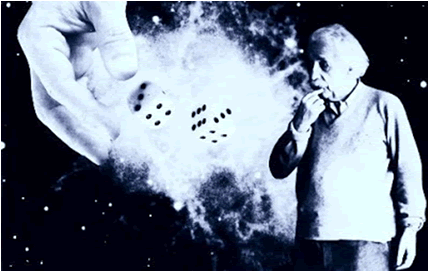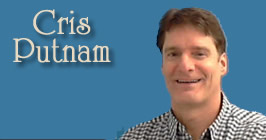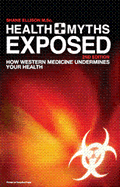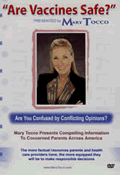By
Cris Putnam
May 3, 2014
NewsWithViews.com
Despite
the desperate last gasps by the drowning neoatheists, the paranormal is
the new normal in Western culture. I will endeavor to empower you with
 astonishing
new findings that suggest a paradigm shift of biblical proportions is
coming…possibly even heralding the end of the age. This Supernatural
Worldview entails understanding and perceiving what exists through a supernatural
lens. Although the term “supernatural” implies that nature
is not all there is, most of Western culture now assumes nature’s
completeness. Like in Eastern religions in which “all is one,”
our universities teach that nature, consisting of matter and energy, is
all encompassing. Antithetical to the cultural consensus, the Supernatural
Worldview entails presuppositions derived from ancient prophetic texts
as well as cutting-edge science. It holds that nature is not ultimate
and that a Creator God brought it into being. If this is indeed true,
then there is much more than meets the eye, and reality is not only much
stranger than commonly recognized; it is much more wonderful.
astonishing
new findings that suggest a paradigm shift of biblical proportions is
coming…possibly even heralding the end of the age. This Supernatural
Worldview entails understanding and perceiving what exists through a supernatural
lens. Although the term “supernatural” implies that nature
is not all there is, most of Western culture now assumes nature’s
completeness. Like in Eastern religions in which “all is one,”
our universities teach that nature, consisting of matter and energy, is
all encompassing. Antithetical to the cultural consensus, the Supernatural
Worldview entails presuppositions derived from ancient prophetic texts
as well as cutting-edge science. It holds that nature is not ultimate
and that a Creator God brought it into being. If this is indeed true,
then there is much more than meets the eye, and reality is not only much
stranger than commonly recognized; it is much more wonderful.
Truth is that which corresponds to reality. Reality is what exists regardless of human opinion. For example, I believe atheists are still immortal, immaterial spirits created by God—whether they believe that or not. Their unbelief does not change that reality. I still want to lead them to Christ. I want them to understand that the brief lifetime they experience within this material realm is a flash in the pan of cosmic time. Nevertheless, today’s decisions have eternal ramifications. God is our greatest ally when we choose to follow Him. In contrast, there are dark, nonhuman adversaries plotting behind the scenes, manipulating and steering history toward malevolent ends. Often they are forgotten in lieu of human conflicts involving politics, religion, and ideology. Even so, secrets long buried will surface to the light of day, and, in the end, there will be ultimate justice. God is always watching. This is the wisdom behind the “fear of the Lord” extolled in the Proverbs. All is not one; there is a transcendent Other. This is the Supernatural Worldview. One’s worldview is often assumed and unexamined. This necessitates defining terms carefully.
Supernatural
The term “supernatural” originates in sixteenth-century, medieval Latin: supra, which means“above,” plus naturalis, meaning “nature.” Thus, it describes transcendence of the natural realm. It is defined in a standard dictionary as:
1) Of or relating to an order of existence beyond the visible observable universe; especially: of or relating to God or a god, demigod, spirit, or devil. 2) a: departing from what is usual or normal especially so as to appear to transcend the laws of nature; b: attributed to an invisible agent (as a ghost or spirit).[1]
Of course, modern sophisticates recoil at the suggestion of supernatural intervention in the world. Accordingly, the supernatural has been demoted to superstition in the academy, but, even so, most people claim some sort of transcendent spirituality. The definitive question comes down to oneness—as in monism—or, as New Testament scholar Peter Jones explains it, twoness entailing “the Creator of nature, namely God, is a completely different being, whose will determines the nature and function of all created things.”[2]
This investigation (The Supernatural Worldview) is unabashedly written from the perspective of Christian theism in that the triune God of the Bible transcends all because He created all things. Exception is taken with former NASA astronaut-turned-Institute of Noetic Sciences (IONS) founder, Edgar Mitchell, who contends, “There are no unnatural or supernatural phenomena, only very large gaps in our knowledge of what is natural.”[iii] He believes that “all is one” within nature. And yet, where the Institute is going will take us into the very bowels of supernaturalism and end times prophetic themes...
Paranormal simply means “not explained by science.” While the term’s nuances are adequately explained in the upcoming book The Supernatural Worldview, the notion of a paradigm shift needs unpacking. Thomas Kuhn is an acclaimed philosopher of science whose influential 1962 book, The Structure of Scientific Revolutions, introduced the concept of “paradigm shift” into the common vernacular.[ii]
Rather than thinking of science as a steady process of increasing knowledge, Kuhn argued that events like the sixteenth-century Copernican revolution demonstrate more abrupt alterations, changes that not only defy the previous theories, but that even redefine the questions being asked, consequently rendering terminology and theories from the old paradigm obsolete. Once the shift has occurred, the two paradigms are called “incommensurable,” meaning the new paradigm cannot be proven or disproven by the rules of the old paradigm, and vice versa. The transformation is so radical that the adherents of the old and new paradigms speak a different language. A paradigm shift involves a worldview transformation.
Kevin Barrett writes, “Paradigm-shifters are issues where mainstream discourse says one thing, and reality says another; and where accepting reality would radically change the way we see the world…and presumably shock us enough to change our behavior.”[3] At the dawn of the twenty-first century, we’re living in the middle of a radical paradigm shift. What was once called paranormal is becoming normal. To understand what is occurring, the Copernican revolution is an instructive model.
In Ptolemy’s second-century model of the solar system, cycles and epicycles were used for modeling the movements of the stars and planets around a stationary earth at its center. As more and more astronomical data came in, the complexity of the system increased. While the system worked, it became horrendously difficult. This suggested a problem. The honored principle known as Occam’s razor dictates, all things being equal, that a simpler explanation is better than a more complex one.
When
Copernicus proposed a new cosmology with the sun at the center, solar
mechanics were greatly simplified and, slowly, a paradigm shift occurred.
When the paradigm shift was complete, all of the Ptolemaic science was
 relegated
to the garbage heap—albeit with great protest from the old guard.
Many believe we are in a similar shift today and the strident cries of
the “new atheists”—Richard Dawkins, Christopher Hitchens,
Sam Harris, and Daniel Dennett—represent naturalism’s death
throes rather than resurgence. Once ardent materialists like the dominant
atheist philosopher of the twentieth century, Oxford philosophy professor
Anthony Flew, are now changing their minds.[4]
relegated
to the garbage heap—albeit with great protest from the old guard.
Many believe we are in a similar shift today and the strident cries of
the “new atheists”—Richard Dawkins, Christopher Hitchens,
Sam Harris, and Daniel Dennett—represent naturalism’s death
throes rather than resurgence. Once ardent materialists like the dominant
atheist philosopher of the twentieth century, Oxford philosophy professor
Anthony Flew, are now changing their minds.[4]
Hard science is increasingly revealing that material reductionism is bankrupt. In a chapter of the book on which this series is based, it shows how Big-Bang cosmology makes a supernatural, powerful, intelligent, and personal Creator of the universe the most reasonable conclusion from the data. The problem for materialism is showcased in descriptions of the Big Bang. In a book about the burgeoning area known as string theory, The Elegant Universe, Brian Greene, a physicist and Rhodes Scholar, extrapolated back to the moment of creation:
As we imagine running the clock backward from the age of the presently observed universe, about 15 billion years, the universe as we know it is crushed to an ever smaller size. The matter making up everything—every car, house, building, mountain on earth; the earth itself; the moon; Saturn, Jupiter, and every other planet; the sun and every other star in the Milky Way; the Andromeda galaxy with its 100 billion stars and each and every other of the more than 100 billion galaxies—is squeezed by a cosmic vise to astounding density. And as the clock is turned back to ever earlier times, the whole of the cosmos is compressed to the size of an orange, a lemon, a pea, a grain of sand, and to yet tinier size still. Extrapolating all the way back to “the beginning,” the universe would appear to have begun as a point—an image we will critically re-examine in later chapters—in which all matter and energy is squeezed together to unimaginable density and temperature. It is believed that a cosmic fireball, the big bang, erupted from this volatile mixture spewing forth the seeds from which the universe as we know it evolved.[5]
Greene is tap dancing around the coherence problem for matter by saying it began “as a point.” What exactly is a point? In a later chapter, he refers to “zero dimensional point-particles.”[6] While scientists accuse theologians of abstraction, one marvels at the absurdity of a particle with no dimensionality. Technically, such an entity does not exist. It is truly an abstraction that makes the physicists’ mathematical formulas resolve, but that has no physical substance. Greene acknowledges the issue by posing a question:
But just as string theory shows that the conventional notion of zero-dimensional point particles appears to be a mathematical idealization that is not realized in the real world, might it also be the case that an infinitely thin one dimensional strand is similarly a mathematical idealization?[7]
Again, I am not aware of anything real that can be said to have one dimension. It seems to me that these are only abstract ideas. They are theoretical entities that yield satisfying mathematical solutions—but at bottom, they are truly only ideas. There is no material stuff with zero or one dimension. It seems safe to say that science points to a universe that was created from nothing and is fundamentally made up of immaterial ideas.
If materialism is a coherent worldview, then matter is its fundamental reality. But Greene admits that matter is an uncertain entity:
Quantum mechanics, on the contrary, injects the concept of probability into the universe at a far deeper level. According to [Max] Born and more than half a century of subsequent experiments, the wave nature of matter implies that matter itself must be described fundamentally in a probabilistic manner.[8]
There is no escaping the fact that by its own methods science has undermined materialism. In fact, the damage is fatal. Its fundamental entity, “matter,” is only a vague shadow of reality. Sure, the big things—like cars and elephants—seem stable enough, but the truth is that they are mostly empty space—and even the tiny particles that give the illusion of solidness aren’t made of anything particularly tangible. The deeper we look, the more we discover that reality is fundamentally immaterial. This idea is picked up again and examined more thoroughly in chapter 12 of The Supernatural Worldview due out on May 15, 2014.
As if that were not enough, scientists have come to the disquieting realization that they can only account for a small percentage of the measured gravity in space. Over the last decade, astronomers have discovered that every galaxy is surrounded by super-massive, yet invisible, gravity sources. They detect these massive sources from observing that galaxies rotate too quickly for the amount of matter they contain. Something huge and invisible is exerting a powerful gravitational force on these star clusters. Because it is invisible, they call it dark matter. Theoretical astrophysicist David Spergel, a leader of the Wilkinson Microwave Anisotropy Probe space mission, concedes:
From our experiments, the periodic table which comprises the atoms or normal matter that are said to make up the entire universe actually covers only 4.5 percent of the whole,” lead theorist Spergel said. “Students are learning just a tiny part of the universe from their textbooks. It would be dark matter and dark energy that comprise the next 22 percent and 73.5 percent of the universe.[9]
In other words, science only accounts for less than 5 percent of reality, and given quantum mechanics, they hardly understand it. Considering this astonishing lack of knowledge, one marvels at the enduring pathological denial regarding the supernatural. Consequently, many former naturalists are losing their faith in promissory materialism. This extends to evolutionary biology as well.

Einstein: God
Did Not Play Dice With The Universe
Thomas Nagel, an influential philosopher at New York University, just published Mind & Cosmos: Why the Materialist Neo-Darwinian Conception of Nature Is Almost Certainly False. The title is self-explanatory and marks an important milestone. When an accomplished academic atheist points to naturalism, screaming “the emperor has no clothes,” it implies a paradigm shift. For decades, we’ve heard about the overwhelming evidence for the naturalistic Darwinian account of life. Yet, here is Nagel breaking ranks:
The argument from the failure of psychophysical reductionism is a philosophical one, but I believe there are independent empirical reasons to be skeptical about the truth of reductionism in biology. Physico-chemical reductionism in biology is the orthodox view, and any resistance to it is regarded as not only scientifically but politically incorrect. But for a long time I have found the materialist account of how we and our fellow organisms came to exist hard to believe, including the standard version of how the evolutionary process works. The more details we learn about the chemical basis of life and the intricacy of the genetic code, the more unbelievable the standard historical account becomes.[10] This is just the opinion of a layman who reads widely in the literature that explains contemporary science to the nonspecialist. Perhaps that literature presents the situation with a simplicity and confidence that does not reflect the most sophisticated scientific thought in these areas. But it seems to me that, as it is usually presented, the current orthodoxy about the cosmic order is the product of governing assumptions that are unsupported, and that it flies in the face of common sense.[11]
|
This is strong language coming from a respected secular academic. Nagel is arguing that there is “no free lunch” and that matter cannot account for all of reality. A cause must be sufficient for its alleged effect, and the mechanistic processes of physics, chemistry, and evolutionary biology are simply not adequate for explaining life, consciousness, reasoning, and morality. Even so, Nagel has a hard time accepting God. He wrote in the New York Times, “Even though the theistic outlook, in some versions, is consistent with the available scientific evidence, I don’t believe it, and am drawn instead to a naturalistic, though non-materialist, alternative.”[12] This clearly reveals how worldview dictates one’s interpretation of the evidence. In other words, even though the scientific evidence points to God as the most reasonable explanation, he is hoping for a naturalistic alternative that is yet to be conceived—another milestone along the way of the paranormal paradigm shift.
Click here for part -----> 1, 2, 3,
� 2014 Cris Putnam - All Rights Reserved
Footnotes:
1.
“Supernatural,”
Merriam-Webster.com
2.
Peter Jones, One or Two: Seeing a World of Difference (Escondido,
CA: Main Entry Editions, 2010) Kindle edition, 155–157.
3.
Kevin Barrett, “Book Review: Dean Radin’s ‘Supernormal’
Could (and Should) Destroy the Dominant Western Paradigm,” Veterans
Today, August 27, 2013. (accessed 11/28/13).
4.
Antony Flew and Roy Abraham Varghese, There Is a God: How the World’s
Most Notorious Atheist Changed His Mind (New York: HarperOne, 2008)
114.
5.
Brian Greene, The Elegant Universe: Superstrings, Hidden Dimensions,
and the Quest for the Ultimate Theory (New York: W. W. Norton, 2003)
42.
6.
Ibid., 77.
7.
Ibid
8.
Ibid., 51.
9.
“WMAP Space-Mission Survey of the Universe After the Big Bang Completed—Its
Results Hint at a Far Stranger Cosmos,” The
Daily Galaxy, October 8, 2010.
10.
Nagel cites Dawkins as an example of the standard account that he doubts.
See Richard Dawkins, The Blind Watchmaker: Why the Evidence of Evolution
Reveals a Universe without Design (New York: Norton, 1986).
11.
Thomas Nagel, Mind and Cosmos: Why the Materialist Neo-Darwinian Conception
of Nature Is Almost Certainly False (Oxford: Oxford University, 2012)
Kindle edition, 5.
12.
Thomas Nagel, “The
Core of ‘Mind and Cosmos,’” New York Times,
August 18, 2013. (accessed 10/29/13).
[iii] Edgar Mitchell cited in Peter A. Sturrock, A Tale of Two Sciences: Memoirs of a Dissident Scientist, book excerpt at IONS. (accessed 09/25/12).
Cris D. Putnam is a bestselling co-author of Petrus Romanus the Final Pope is Here and Christian apologist. He holds a Masters in Theological Studies from Liberty Baptist Theological Seminary and a a Certification in Christian Apologetics from BIOLA University as well as a B.S. in religion and mathematics. He is recognized for expertise in the area of Christian apologetics, biblical prophecy and other prophetic traditions. In that regard, he has been interviewed on Prophecy in the News, as an expert for the television show Countdown to Apocalypse on The History Channel and in Canada for I Prophesy: The Future Revealed. He has also appeared on many major radio programs and podcasts across the country. He is a member of the International Society of Christian Apologetics, the Evangelical Philosophical Society and the Tau Sigma National Honor Society.
Website: www.logosapologia.org
E-Mail:
logosapologia@gmail.com










 Share
This Article
Share
This Article




